Last Updated on May 3, 2019
I like to feed the birds in my backyard, but it’s a hobby that can get expensive, depending on how much you feed the birds and what type of food you use. Enter Aldi.
Several times a year, Aldi sells a range of bird-feeding products, including several varieties of sunflower seeds and suet as well as bird feeders and bird baths, and even hooks for hanging bird feeders. These are available as limited-time ALDI Finds (Special Buys), so if you see them in your weekly ad or in store and you want them, buy them sooner rather than later. Once they’re gone, that’s it for time being.
Let’s take a look at some of the options.
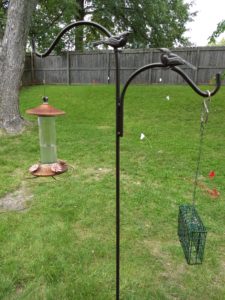
Part of my back yard bird-feeding area. This shepherds hook is from Aldi.
St. Albans Bay Suet Plus High Energy Wild Bird Suet
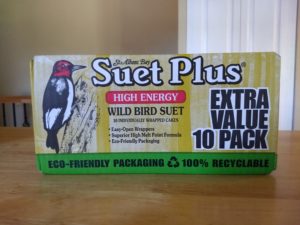
These suet cakes cost $7.99 at the time of publication and come in a 10-pack cardboard box. Most 10-pack boxes of suet at big box stores or hardware stores are about $10, or $1 per cake. Suet cakes cost more in other stores if you buy them individually in a plastic tray, upping the cost to $1.29 to $1.50 unless they’re on sale. At Aldi, you can only buy suet in a 10-pack, and the Aldi suet cakes are approximately 80 cents a piece. The case weight is 6 lbs., 14 oz.
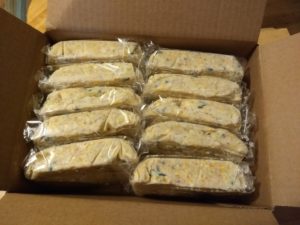
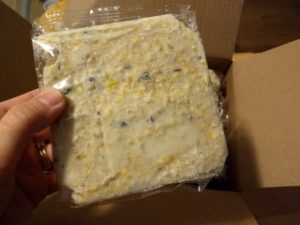
Each cake is in an “easy open” plastic wrapper, and the box claims the cakes use eco-friendly packaging. It states, “Our wrappers use 80% less packaging by weight than suet in a tray. That means fewer trucks on the road, less energy consumption and reduced environmental impact. And our packaging is 100% recyclable!”
I can easily recycle the box in my curbside recycling bin, but I don’t know if any facilities near me would accept the plastic wrappers, so I’m not sure about the 100% recyclable claim.
The box says the suet cakes have a high melt point formula, so they are less likely to fall apart during warmer weather. The box recommends refrigerating before use for easier handling. I simply store my suet cakes year-round in a rodent-proof metal trash can with a lid in my garage, and even when the temperature goes into the 80s and 90s outside, I have never had any trouble or messes while opening the packaging or handling the cakes.
Cake ingredients are: rendered beef suet, cracked corn, millet, and black oil sunflower seeds.
The suet cakes are manufactured by Wildlife Sciences in Minnetonka, Minn. The company sells a variety of suet products and suet feeders.
In my experience, Aldi’s suet cakes have attracted birds at the same rate as suet cakes I’ve purchased from my locally owned hardware store and from big box stores like Walmart or Home Depot. In my Midwestern backyard, I frequently see downy woodpeckers, hairy woodpeckers, flickers, juncos, chickadees, cardinals, wrens, and even robins eating this suet, along with various sparrows and finches, and a few starlings. I sometimes prefer feeding suet over sunflower seeds because it is less messy and attracts fewer undesirable or less desirable birds. The squirrels, while not completely disinterested, also don’t pay as much attention to suet.
The only downside is that Aldi’s suet is not available for purchase year-round, so I usually buy an extra box or two when it is in stores.
Valley Splendor Wild Bird Food Black Oil Sunflower
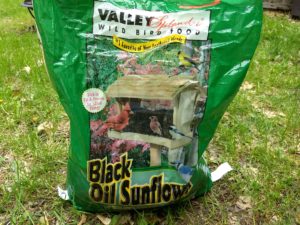
Black oil sunflower seeds are one of the most nutritious, popular, and versatile seeds you can put in your back yard feeders. This is one of several varieties of black oil sunflower seeds I’ve purchased from Aldi. The brand, Valley Splendor, also has products available for purchase at retailers like Walmart and Amazon.
I’ve always had success feeding my backyard birds — and squirrels, although not on purpose — with Aldi’s black oil sunflower seeds. I get quite a few cardinals, which are always nice to see. As with Aldi’s suet, bags of birdseed like this are only available in stores a few times a year, so I usually buy more than one bag because once they’re gone, they’re gone, until next time.
This is a 20-pound bag that was manufactured by Red River Commodities in Fargo, ND, and it states it is rich in fat and protein for added energy for birds. It says these seeds are ideal for cardinals, crossbills, buntings, grosbeaks, goldfinches, linnets, bluebirds, blue jays, and woodpeckers.
The bag recommends resealing and storing in a closed container in a cool, dry place away from other food items. It says this helps protect against insect infestations that can occur with whole grain seed products. I store all of my bird seed and suet in my garage in a metal trash can with a lid that fastens securely.
The bag features a seal from the Wild Bird Feeding Institute, a trade association for the wild bird and back yard wildlife feeding industry. The bag also has a Cornell Lab of Ornithology Lab Sponsor seal.
The back of the bag has a “recipe” for a trail mix of sorts for birds:
“Wild Wonder” Bird Treat Recipe
- 4 cups black oil sunflower seeds
- 2 cups millet seeds
- 2 cups peanuts
- 2 cups raisins or dried berries
- 1 cup njyer
- a dash of tender loving care
Black Oil Sunflower Seed
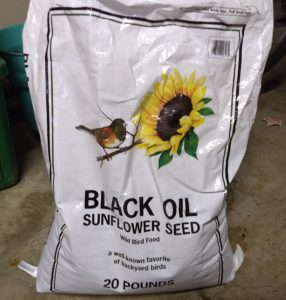
This is another variety of sunflower seeds I’ve purchased at Aldi. This is a 20-lb. bag manufactured by Global Harvest Foods, Ltd. of Seattle, Wash., which makes a variety of bird-feeding products including seeds, suet, and even chicken scratch.
This sunflower seed got me results as good as any other sunflower seed available on the market. The only ingredient is black oil sunflower seeds, and the bag recommends storing in a cool, dry, and shaded place such as a garage, shed, or patio storage box.
People with allergies should know that the birdseed is manufactured in a facility that handles major allergens such as peanuts, tree nuts, wheat, fish, and soy products.
The Verdict:
Aldi sells suet, sunflower seeds, and sometimes even bird feeders or hooks for hanging bird feeders as Special Buys (ALDI Finds) at different times throughout the year. If you like feeding birds, Aldi’s products are worth a try.

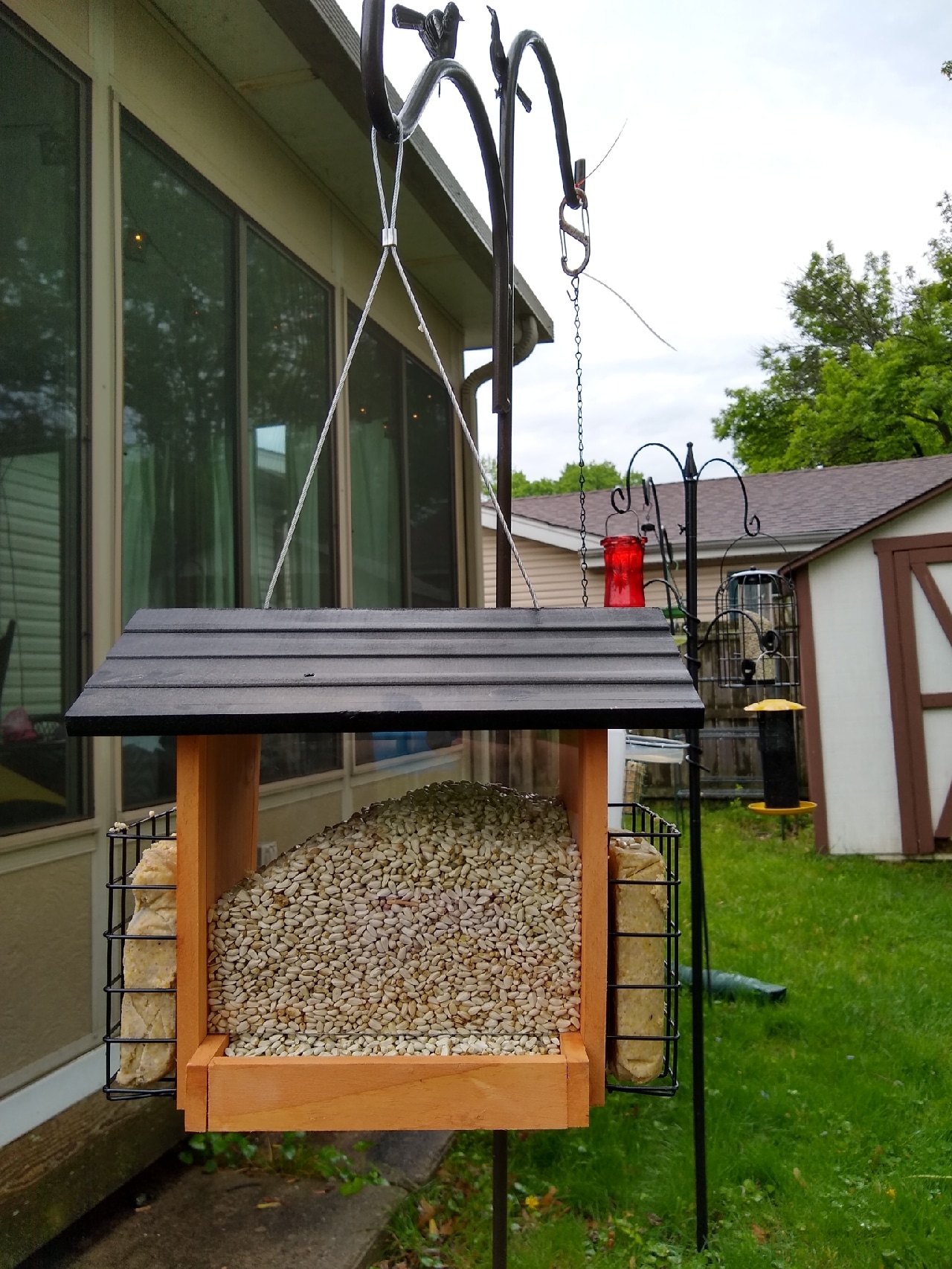
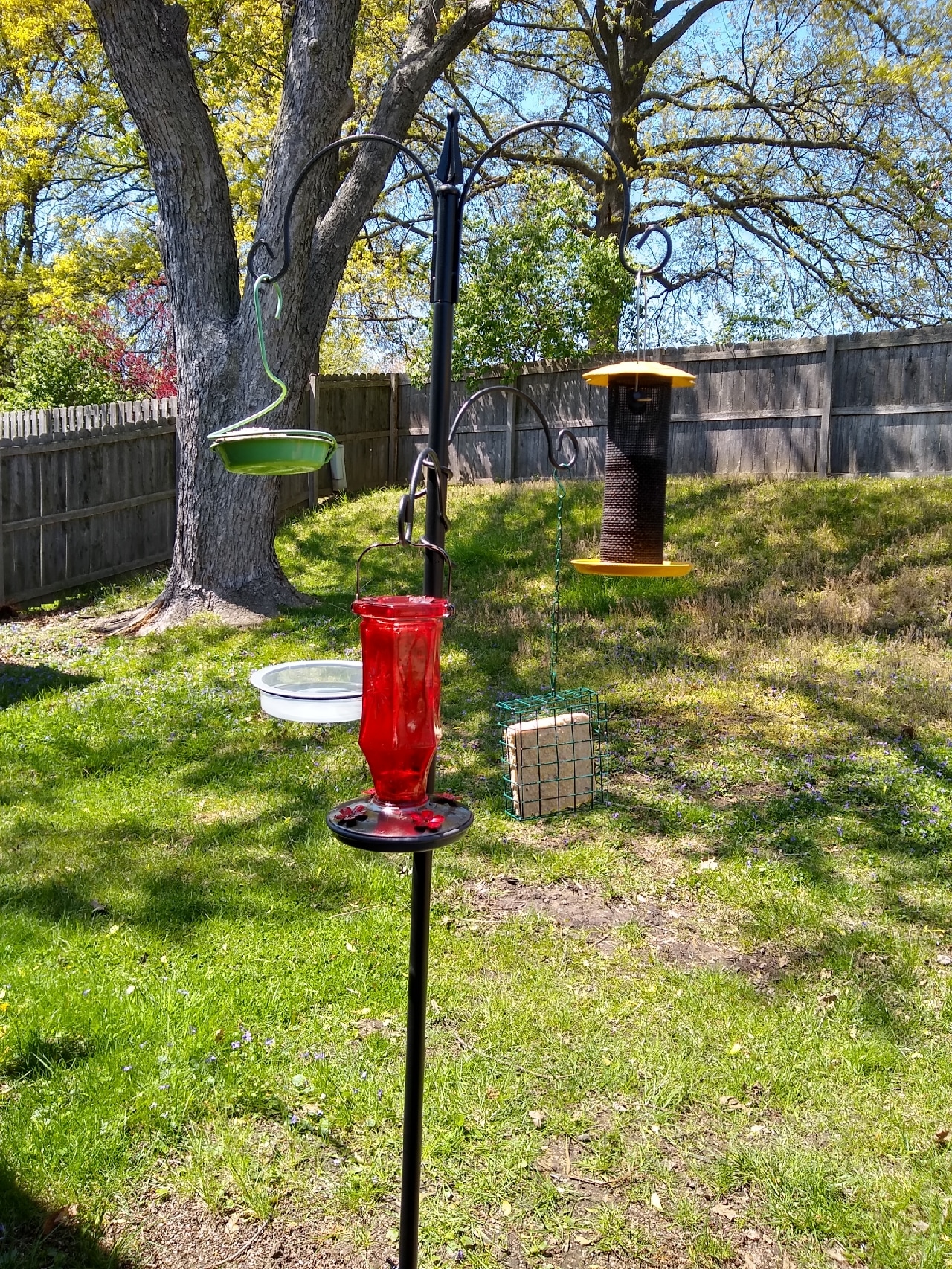
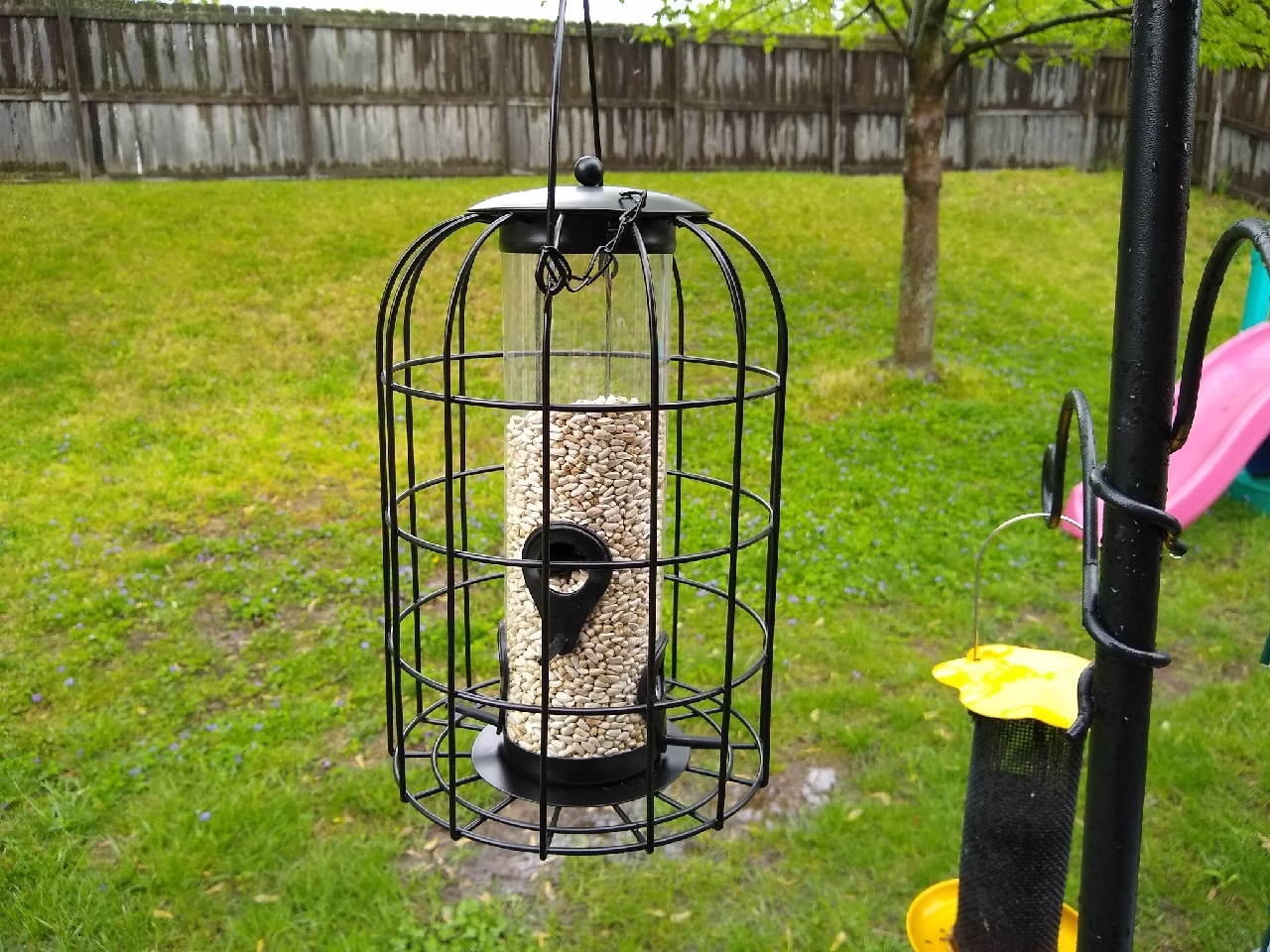
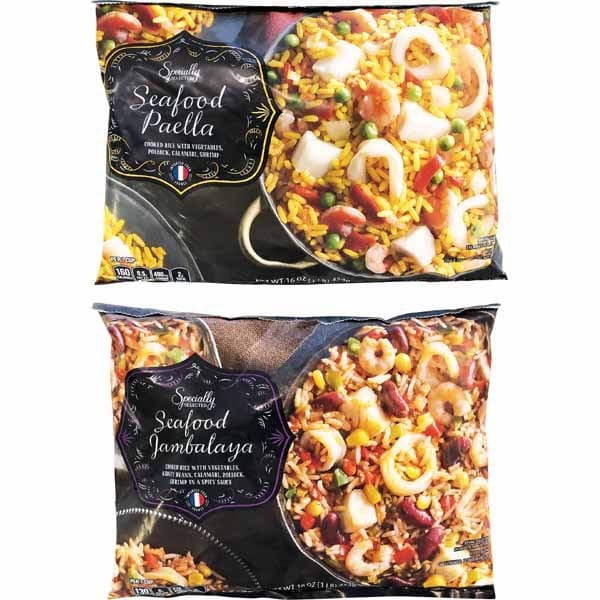
Note, these are slightly smaller than individual suet cakes you buy at discount stores.
I also find that the more complex cakes with seeds and fruit, attract more birds more often. These less so. None the less, I still get these…
For massive sunflower bags, I have not bought from Aldi because they are usually sold out! But, when I bought a big, cheap bag from Ace recently, it was very dirty and dusty. I think that is how those big bags are so cheap. They are not cleaning the seeds as much as the smaller clear bags you see for more money in discount stores. There is no way to measure the dirt and dust but, it probably makes the “discount” of these big bags a bit less than you think. It also makes your feeder just completely disgusting with the seed dirt and dust when you fill it.
If peoples experience with the Aldi seed has been a clean one, let us know.
I generally haven’t found Aldi’s seed bags to be any more dusty or dirty compared to bags I buy at big box stores or at my locally owned hardware/garden store, but I haven’t done any really serious or scientific comparison. I get downy woodpeckers almost daily right now eating my Aldi suet cakes, and sometimes a flicker has surprised me by showing up, so I’m happy.